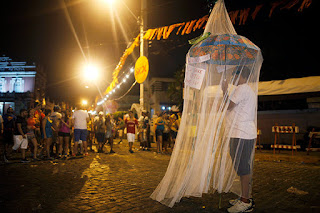Another month, another onslaught of Internet insecurities. The big news in February was the ongoing battle between Apple and the United States Federal Bureau of Investigation (FBI), but this short month also brought reports of vulnerabilities for airports, social media, faces and more:
Surf secure, stay Rando and check out our Leap Year special: 12 months of SumRando Platinum VPN (unlimited data) for only $29 USD!
Want to know more about previous security vulnerabilities? Read on!
SumRando Cybersecurity is a South Africa-based VPN, Web Proxy and Secure Messenger provider.
Airport Wi-Fi: In an effort to demonstrate the danger of public Wi-Fi, Avast Software set up 3 fake Wi-Fi networks next to the Mobile World Congress registration booth at the Barcelona Airport. In 4 hours, Avast had the data of over 2,000 conference attendees. Gagan Singh of Avast advised, “With most Mobile World Congress visitors traveling from abroad, it’s not surprising to see that many opt to connect to free Wi-Fi in order to save money, instead of using data roaming services. When taking this route, people should utilize a VPN service that anonymizes their data while connecting to public hotspots to ensure that their connection is secure.”
Facebook Users and Non-Users: CNiL, the French data protection authority, has found Facebook guilty of collecting the information of non-users who visit public Facebook pages as well as collecting the sexual orientation and religious and political views of users without their explicit consent. CNiL has given Facebook 3 months to comply with the French Data Protection Act. If only the rest of the world were similarly looked after…
African Corporations and Governments: Hacktivist group Anonymous has targeted Rwanda, Uganda, South Africa, Zimbabwe, Tanzania, Sudan, South Sudan and Ethiopia in its latest attack on child abuse, child labor and internet censorship: “The focus of [Operation Africa] is a disassembly of corporations and governments that enable and perpetuate corruption on the African continent.”
Power Grids: Evidence has confirmed that a December blackout in Ukraine was in fact caused by a cyberattack. According to United States officials, such an attack is far from limited to the Eastern European nation, as power grids in countries such as the U.S. are no more secure.
Gmail: The security hasn’t changed, but it has become a bit more apparent. Gmail recently added a red unlock symbol to any emails that haven’t been authenticated by TLS encryption. Look for it: you may be surprised to discover how many insecure emails land in your inbox.
Social Media: February 18 brought not only elections, but also a shutdown of Facebook, Twitter and Whatsapp to Uganda, which was written off as a “security measure.” In response, a reported 1.5 million VPN downloads were used to access these valuable platforms on election day.
The Internet of Things: United States intelligence chief James Clapper is aware of the vulnerabilities found in IoT devices such as cars, appliances and power grids, but appears to view them in a positive light: “In the future, intelligence services might use the IoT for identification, surveillance, monitoring, location tracking, and targeting for recruitment, or to gain access to networks or user credentials.”
Hospital Computer Systems: Vulnerabilities were found this month on both coasts of the United States. Ransomware forced the computers of a California hospital offline until the demanded $17,000. was paid and security researchers revealed the medical devices at a dozen Baltimore and Washington, DC hospitals to be vulnerable to attack.
Your Face: Artists Adam Broomberg and Oliver Chanarin have created portraits of over 100 Russians with Vocord FaceControl 3-D, a camera surveillance system. When utilized as intended, the cameras collect and identify the faces of passersby in crowded entrances to stadiums and train stations.
Surf secure, stay Rando and check out our Leap Year special: 12 months of SumRando Platinum VPN (unlimited data) for only $29 USD!
Want to know more about previous security vulnerabilities? Read on!
- It's a Vulnerable World: January 2016
- It's a Vulnerable World: December 2015
- It's a Vulnerable World: November 2015
SumRando Cybersecurity is a South Africa-based VPN, Web Proxy and Secure Messenger provider.













